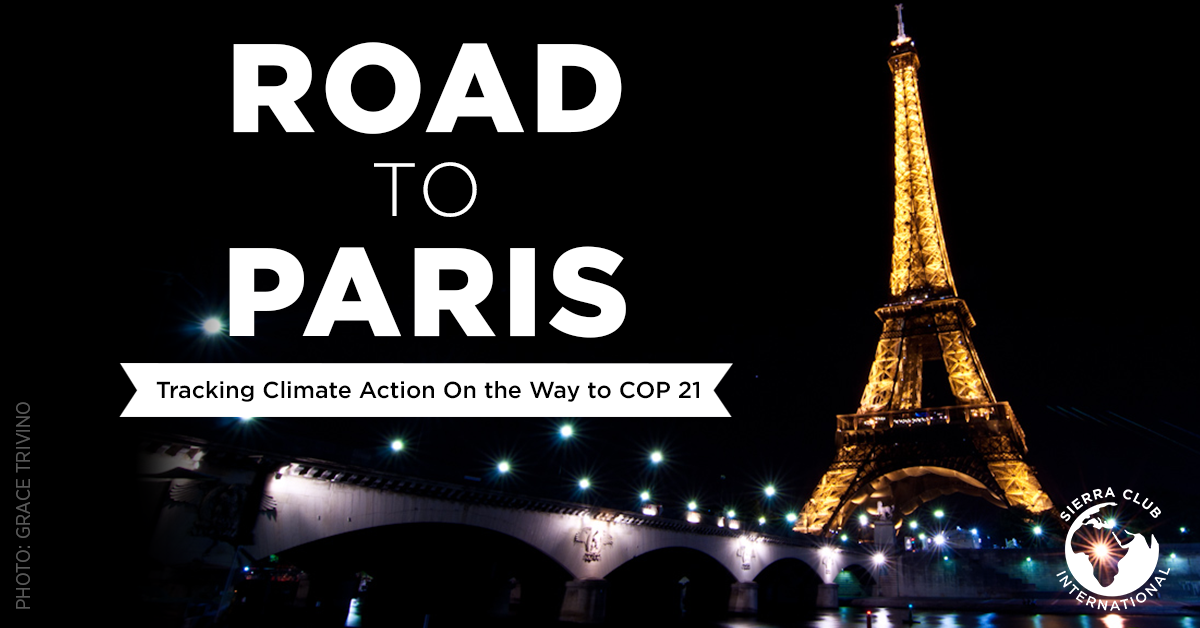In the lead up to the COP21 climate negotiations in Paris later this year, the United Nations Framework Convention on Climate Change (UNFCCC) was recently hosting its annual Ad Hoc Working Group on the Durban Platform for Enhanced Action (ADP) session in Bonn, Germany. This session, ADP 2.9, came six months prior to COP21 and presents the Parties -- the negotiating bodies for each country -- with a need to further develop and clarify the text that came out of the previous intersessional, ADP 2.8, in Geneva, Switzerland. This text will be used during the final 2015 climate negotiations in Paris, and will give us the 2015 Agreement.
Janice Meier was blogging from Bonn.
The G7 got the timing and the optics right in signaling to the world that today is when we commit to a decarbonized world, but by committing to a 40-70 percent reduction in emissions according to 2010 levels by 2050, the world’s leading economies are laying out the basic justification for the work being done in the United Nations Framework Convention on Climate Change (UNFCCC) toward the 2015 agreement. None of these countries is likely to meet this target without phasing out fossil fuels and rapidly scaling up non-carbon energy sources. And each of these countries understands that the best choice for getting the job done is cooperative global action via a sealed climate deal in Paris this December.
Then there’s the substantive action by sub-national entities, provinces, states, cities, and towns that are working the pre-2020 ambition angle and offering opportunity to make a difference where it counts -- in our communities.
But no one who has spent substantial time in this process would discount the difficulty of reaching an agreement, applicable to all Parties, for the 2015 Paris deal.
To quote Mohamed Adow, Senior Climate Change Advisor for Christian Aid, “The text which will make up the Paris agreement is like a lens we’re all looking through to a safe and secure world. At the moment it’s a bit grubby and hard to see through. The co-chairs of the negotiations on the Paris agreement need to go away and give it a good clean so that leaders can see what needs to be done."
And it now appears that the Co-chairs of this work are planning to do exactly that: to produce a suggested text “starting point” by July 24, 2015 for Parties to reflect on and absorb leading into the upcoming August negotiating session. This is an important start, but it’s important to note that it’s only a start.
In order to actually seal the Paris deal, we will have to fight our way past questions on which countries need to give support or receive support in order to take appropriate climate action (differentiation), how to make the deal legally-binding in the face of country constraints (bindingness), how to review country actions with respect to the science (adequacy), and how to scale up climate action from the inadequate levels we are seeing in the current early climate action “contributions,” in order to ensure that we meet our climate goal (increasing ambition).
In the end, the health and economic co-benefits will far outweigh the costs, and climate finance will be necessary to get us there. Securing that funding, technology transfer and capacity building will be the primary source of trust to hold the 2015 deal together.
We have a promising start, now let’s capitalize on it.
